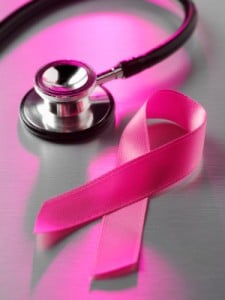 According to the National Cancer Institute, 226,870 women will be diagnosed with breast cancer in 2012 and 39,510 will die from it. The role of physical activity or exercise in cancer prevention and management has been best studied in breast and colon cancer. Today we are going to examine the relationship between exercise and breast cancer.
According to the National Cancer Institute, 226,870 women will be diagnosed with breast cancer in 2012 and 39,510 will die from it. The role of physical activity or exercise in cancer prevention and management has been best studied in breast and colon cancer. Today we are going to examine the relationship between exercise and breast cancer.
Exercise and Breast Cancer Prevention
The United States Department of Health and Human Services has reviewed approximately 50 studies and has concluded that there is convincing evidence that physical activity reduces the risk of breast cancer. The risk reduction in breast cancer ranges from 20% to 80%. Risk reduction appears better in post-menopausal women and possibly better in women with a BMI less than 25.
To achieve this risk reduction 30 to 60 minutes of moderate to vigorous activity daily is needed, though some studies showed a risk reduction of 20% to 40% with 3 to 4 hours of moderate activity a week.
The good news to reaching these activity levels should not be hard to do. Moderate activity can range from walking at 3 mph to bicycling at 10 to 12 mph. Vigorous activity can be obtained by brisk walking at 4.5 mph and everything more strenuous than that.
Why Does Exercise Help?
Exercise improves insulin tolerance meaning that less insulin is needed to move blood glucose into the cell. Higher insulin levels are associated with breast cancer. Breast cancer is also related to body fat and exercise helps women obtain and maintain a healthy body composition. In pre-menopausal women who may have high estrogen levels exercise can bring estrogen levels down to a safer level. And, finally, exercise improves the immune system which destroys cancerous cells.
Exercise and Breast Cancer Mortality
The Nurses’s Health Study showed a lower overall mortality rate and a lower breast cancer mortality rate in women who were more active than sedentary women. Overall mortality was reduced by 29% by simply walking the equivalent of 3 mph for one hour a week. Breast cancer mortality was reduced by 50% by walking the equivalent of 3 mph for 3 hours a week.
Exercise and Breast Cancer Treatment
Cancer treatment whether it be surgery, chemotherapy, or radiation therapy can have adverse effects on many organ systems. In addition, cancer survivors suffer from fatigue and decreased quality of life.
Exercise three times a week for 20 to 40 minutes has been shown to improve cardiopulmonary fitness in breast cancer survivors. Muscle strength and endurance improves in breast cancer survivors with a resistance exercise program. Studies show that it is safe for women with lymphedema to perform both aerobics and resistance exercises, though a compression garment is recommended.
Studies looking at cancer in general have generally found improvements in fatigue and quality of life in cancer survivors who remain active.
Exercise and Breast Cancer Awareness
The link between exercise and breast cancer is not well publicized. If you know someone with breast cancer or at risk for it get the word out to them to become physically active.
If you’re already physically active, stay active. If you’re not physically active, get active. If you get breast cancer become and stay as physically active as possible. And make sure others are aware of the link between exercise and breast cancer.
See related articles.
“Aerobic Exercise: Helpful Tips”
